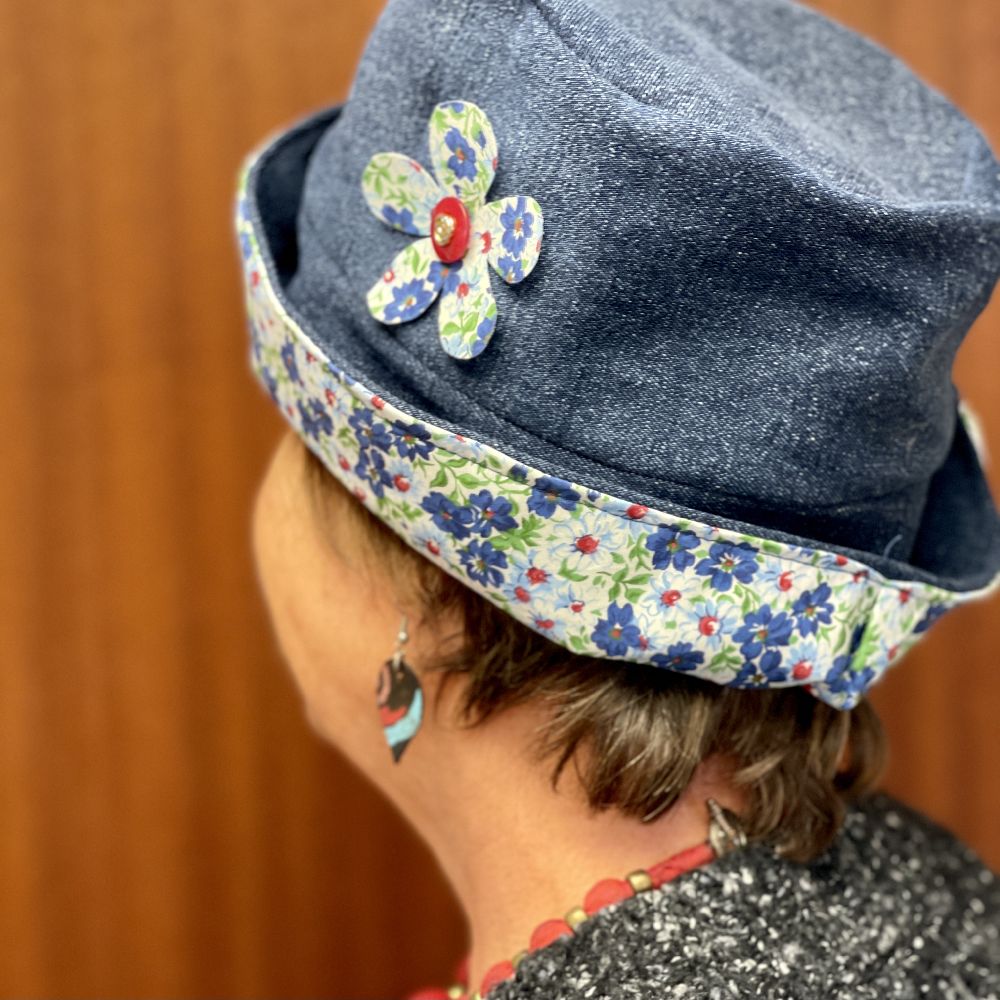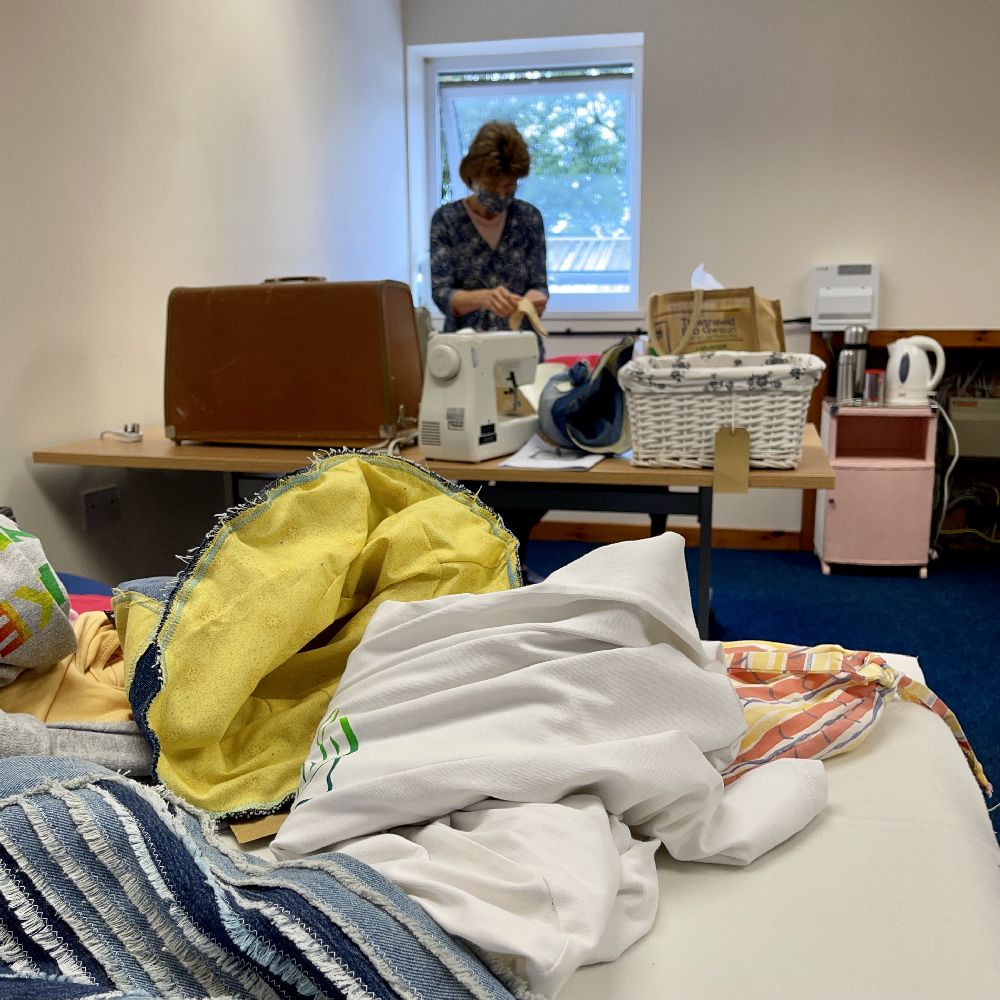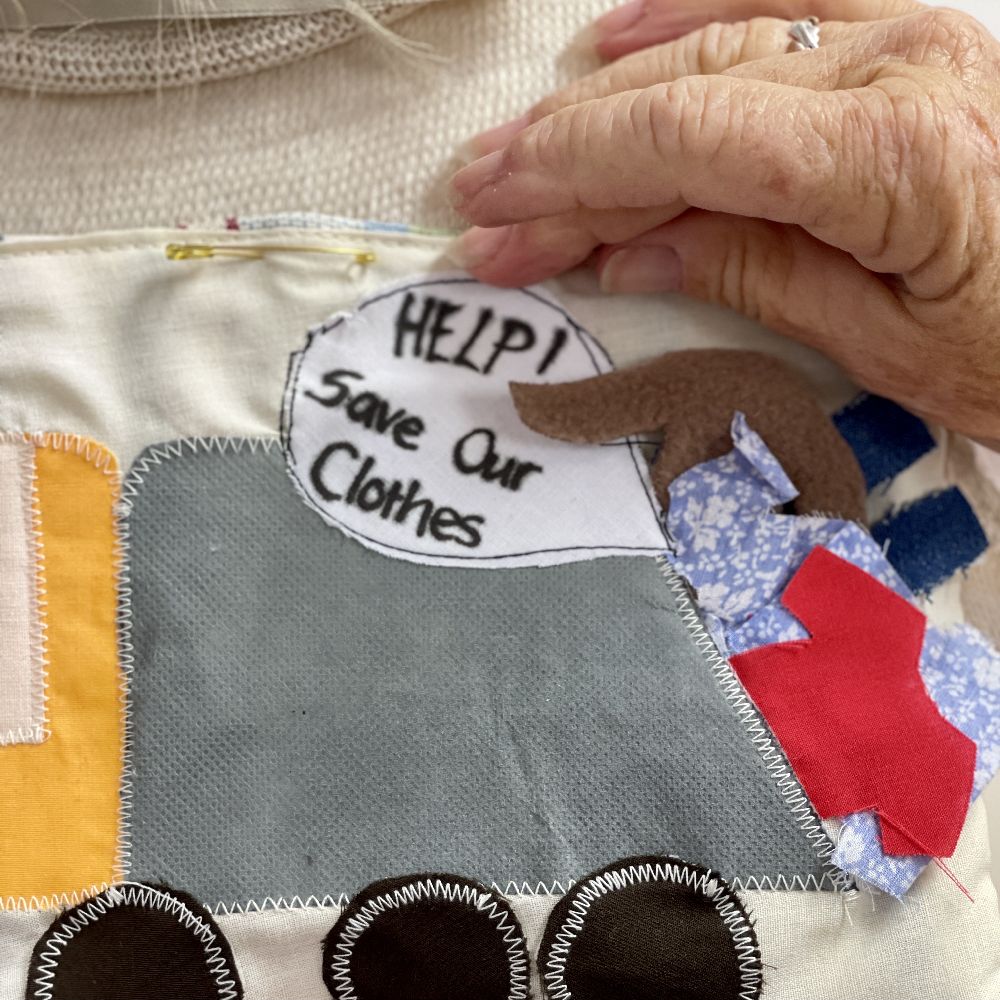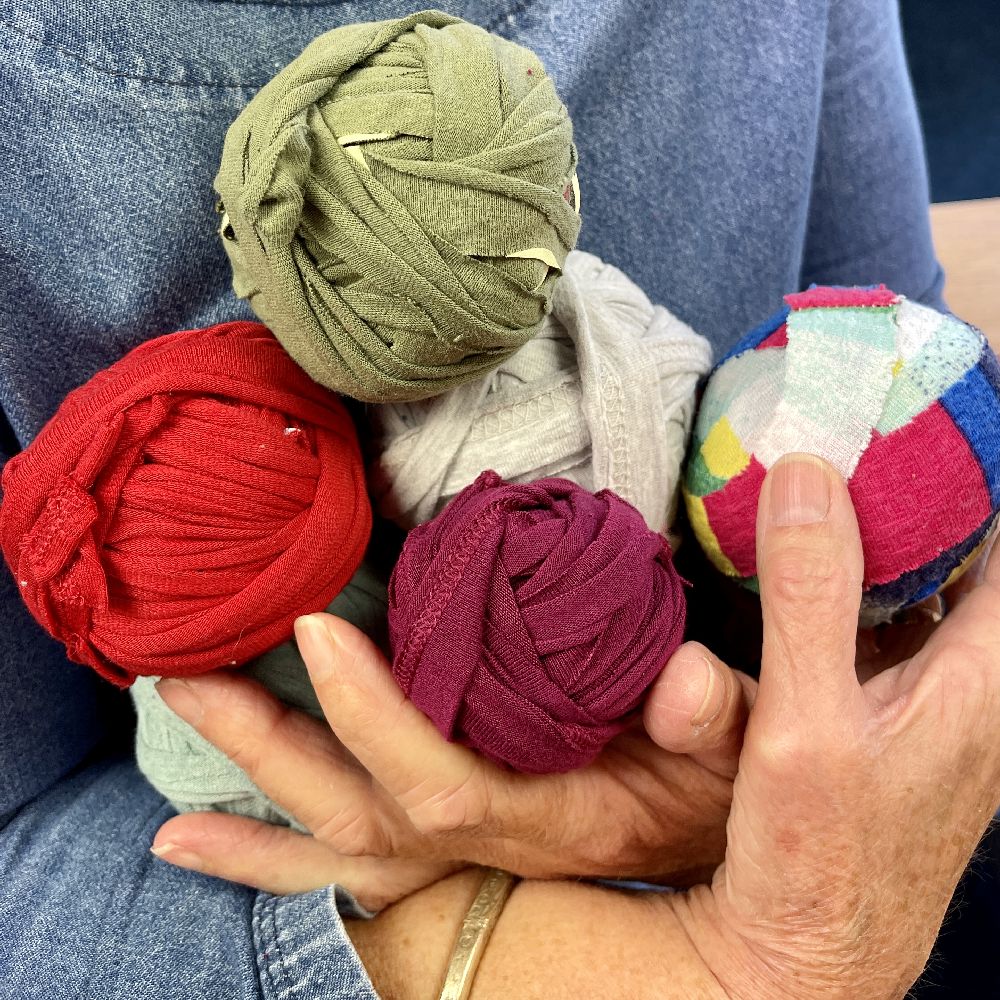One of our previous projects was focussing on reducing textile waste by repairing and repurposing clothing and other textiles.
We are challenging the fast fashion industry and our throw-away culture.
Make New And Mend had been running from …..and came to an end on……….
We all need to buy fewer clothes and make them last longer.
At TBG, we had teamed up with the Paul Sartori Foundation on a project to find ways of reducing the mountain of local unwanted clothing. Our group of volunteers repaired and upcycled clothes and textiles and remade them into beautiful new items.
To find out more or become a volunteer with the current project, call in at the Garment Repair Cafe.
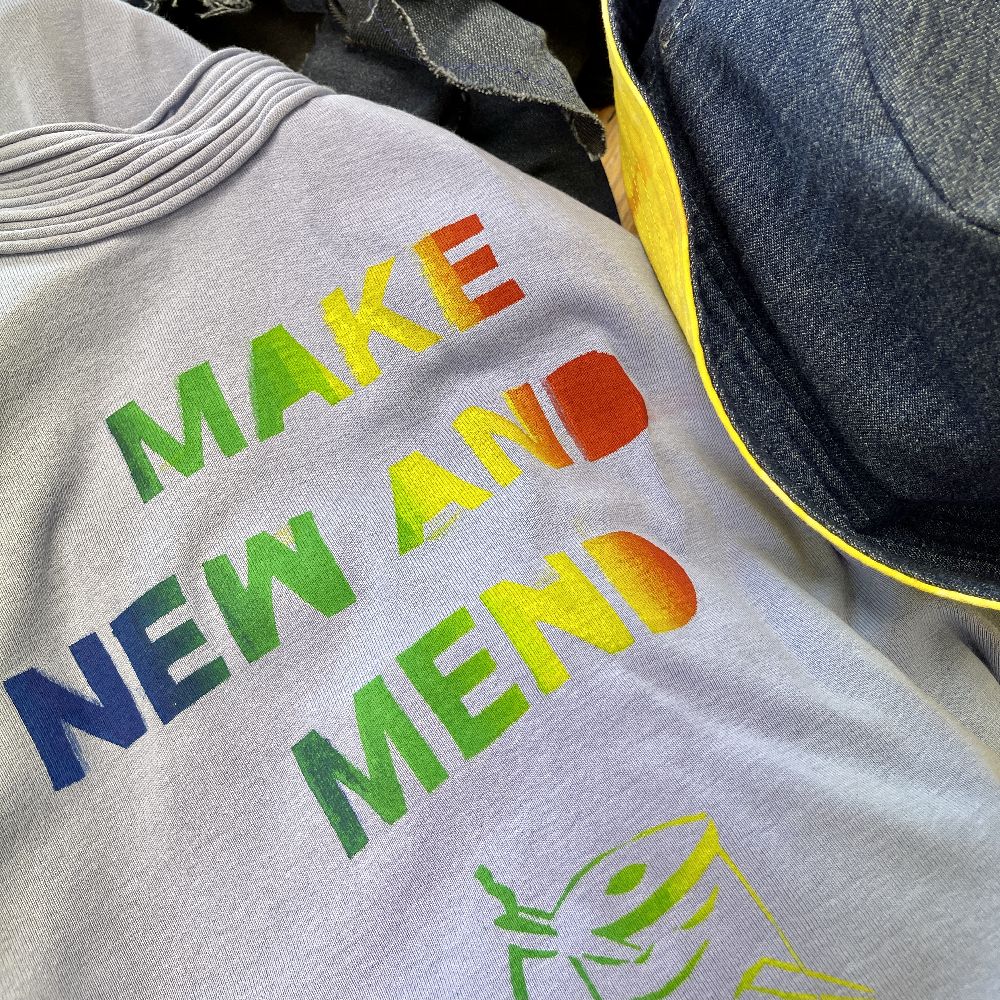
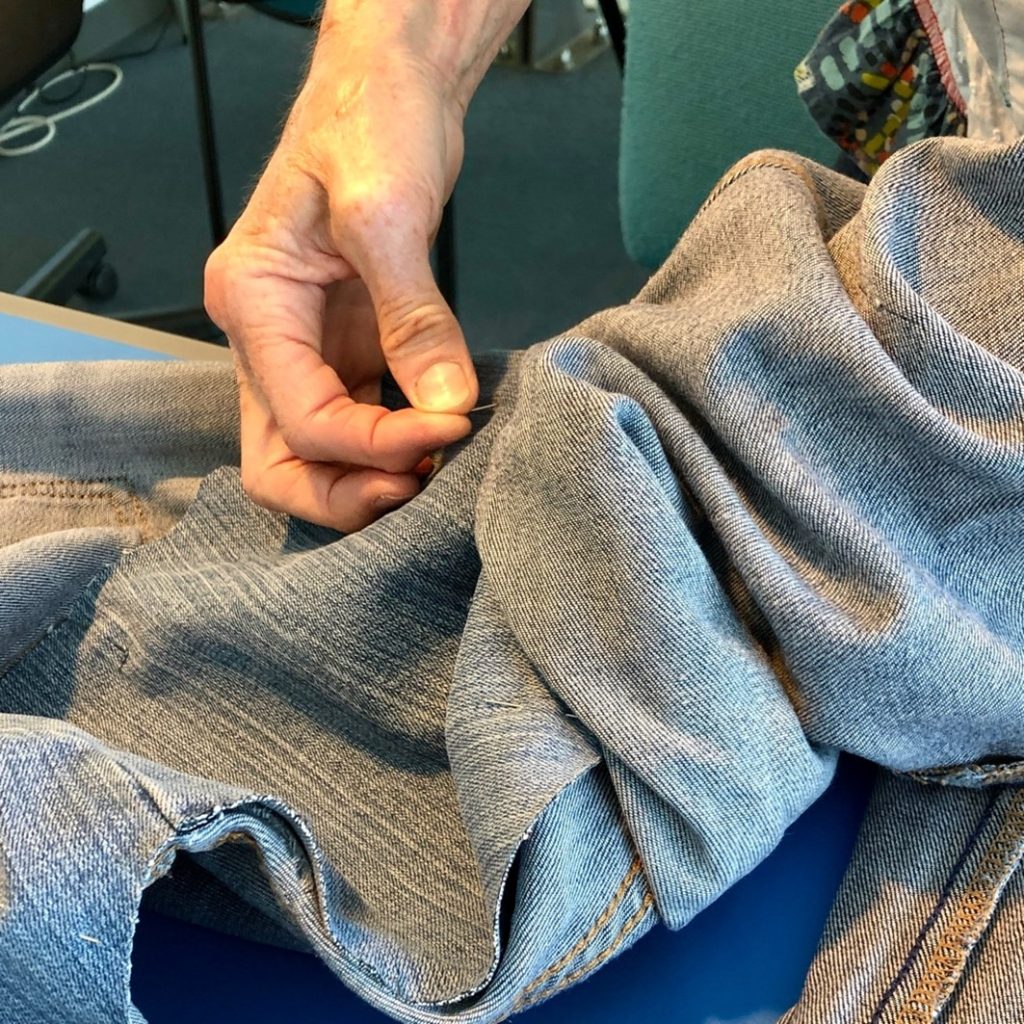
Facts about the fast fashion industry and clothing waste
In the UK we buy lots of new clothes and donate what we no longer want to charity shops, but the truth is that a huge percentage, given to the charity sector for re-sale, is either incinerated or sent to landfill. The cost is not just financial – its very bad for the environment too.
- The fashion industry accounts for some 10% of global carbon emissions – aviation accounts for 2%. Which? magazine
- We buy 60% more clothes than 15 years ago but wear them for half as long. The Times
- In the average UK household, nearly a third of clothes (worth over £1,000 per household) haven’t been worn in the last year. WRAP
- 350,000 tonnes of used but still wearable clothing (worth £140 million) goes to landfill in the UK every year. Clothes Aid
- 700,000 tonnes of clothing gets sent to recycling centres, textile banks, clothes collections and to charity each year . Clothes Aid
